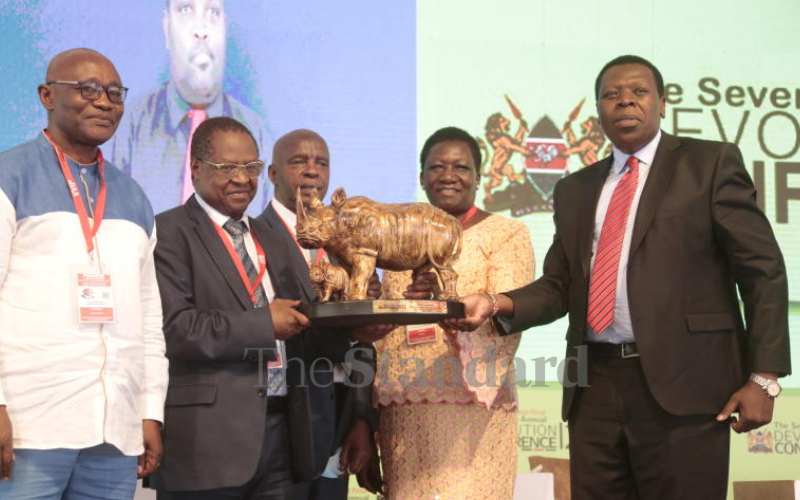×
The Standard e-Paper
Smart Minds Choose Us

From left; Nyamira Governor Stanley Ongwae, CoG Chair Martin Wambora, Makueni Governor Kivutha Kibwana and Alice Milgo present a gift to Defence CS Eugene Wamalwa. [Boniface Okendo,Standard]
This year’s devolution conference ended yesterday with a lower turnout. Exhibitionists folded up earlier than usual, with some not opening at all.